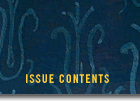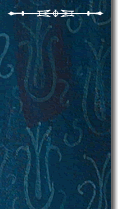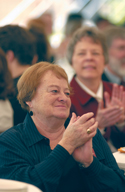


 |
 |
|
Feature :: Page 4 :: Mother Midge
Jump to Page 1 : 2 : 3 : >4< : 5 : 6 of Mother Midge
Brittingham’s job often entails the recruitment of graduates to serve on committees and volunteer in the Oberlin community. Fun and fulfilling tasks, usually.
“My years in the Association with Midge were filled with laughter,” says Danette DiBiasio Wineberg ’68, president of the Alumni Association from 1995 to 1997. “I most remember her work behind the scenes, her positive attitude—regardless of what was happening around her—her wise counsel, her amazing command of the myriad details of people and events, her calmness in crisis, and her unfailing good humor.”
 But there were some not-so-fun times as well, particularly when the
Alumni Association was at odds with the College, tagging Brittingham
as the middleman.
In 1984 the
Alumni Council voted to protest the College’s investments in South Africa
during apartheid.
But there were some not-so-fun times as well, particularly when the
Alumni Association was at odds with the College, tagging Brittingham
as the middleman.
In 1984 the
Alumni Council voted to protest the College’s investments in South Africa
during apartheid.
“President Starr, who wanted to avoid putting pressure on the Board of Trustees, had the attitude of ‘How can you let this happen?’” says Brittingham. “I told him that I couldn’t control Oberlin alumni. Some colleges have alumni who can be controlled by an administrator, but not Oberlin. Our alumni are Oberlin students grown up.”
Granted, she cannot govern Oberlin alumni, nor does she want to, but she has gently led them in the right direction. Some graduates express displeasure, for example, with the existence of student and alumni groups that recognize gay, lesbian, bisexual, and transgendered people and about the reputation they feel Oberlin has as a “gay” school.
On issues such as this, Brittingham deploys Jimmy Carter-like diplomacy. “Some people are not terribly supportive of gay rights or of other things going on at the College, and they can be quite unhappy. I say to them, ‘I understand how you might feel about this issue.’ For some, the issue is a religious matter. I remind them that throughout its history, Oberlin has been at the forefront of social justice and defending oppressed populations. This is another instance of that, and we will remain a welcoming college to everyone, whether they’re gay, straight, black, or green.”
Brittingham put action behind those words when a group of gay and lesbian graduates petitioned to become a recognized alumni group in 1989, two years after she helped establish a Black Alumni Committee.
“I got to know the people who were pushing for it. They were the same age as my two boys (Smith IV ’84 and Billy ’87),” Brittingham says. “I don’t know why I was so attracted to the cause, but I supported these people who had been active together in a gay/lesbian student group and who needed to work together as an alumni organization. It was a very controversial issue at the alumni executive board level, and we went through several difficult meetings.
“The board members were at my house one Saturday night,” she continues. “There were heated discussions all over the place. Finally somebody asked me what I thought. I replied, ‘We just have to do this. It’s a matter of social justice.’ The next morning, we had a unanimous vote in favor of the group.”
Brittingham notes proudly that Oberlin became the first college or university to accept a gay alumni group as part of its Alumni Association. Schools such as Yale created a separate association. There are now 11 active alumni affiliate groups at Oberlin—those for Asian Pacific and Latino Americans, Christians, environmentalists, ultimate frisbee players, bowlers, and more.
Brittingham’s sense of social justice guides her life, professionally and spiritually. “She has been a pillar of the church for years,” says English Professor Bob Pierce, a member of Christ Episcopal Church. Brittingham has served on the Vestry there many times and twice as senior warden, the head lay office in the parish.
“She has long been committed to bringing feminist ideas to the church, thus she worked on the parish committee to prepare inclusive texts of the Scripture readings before such texts were widely available. She was also a leader of the local and national movement to recognize women as priests in the Episcopal Church,” says Pierce.
![]()